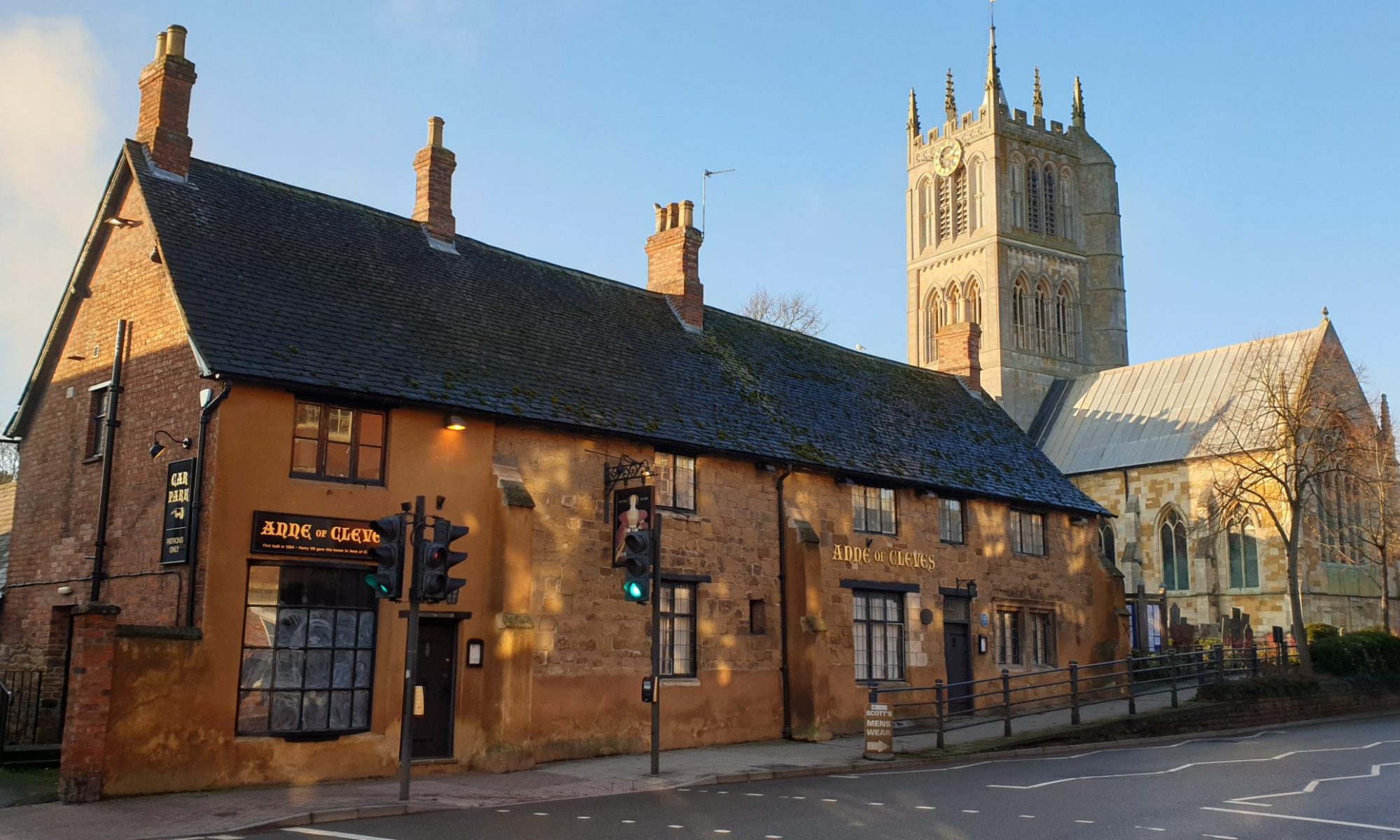Initially, Brian developed the Freckleton Air Disaster Presentation, and has since increased his portfolio of talks to include more local subjects focusing on military talks with a #localhistory connection.
The HistoryFare Talks are delivered to a group of #militaryhistory and #localhistory enthusiasts that meet on a monthly basis in Melton Mowbray.
The monthly talks usually take place on the 1st Thursday of the month at 20:00Hrs at:
Melton Mowbray Royal Air Forces Association Branch HQ
The Tornado Club
24 Asfordby Road
Melton Mowbray
Leicestershire
LE13 0HR
In addition to Brian, guest speakers are invited to come along and present. Individuals do not have to be a member of the RAF Association to attend, but they must reserve their seats in advance.
Admission charges are currently at a reasonable £3 per person per talk.
To view the current schedule of talks and to see what’s coming up in the next few months, click here Talk Schedule.
In addition to giving talks for the military history group, Brians talks can also be booked by other social groups and organisations. If you are interested in booking a talk then please get in touch using the email address: meltonhistoryfare@gmail.com
The presentations can all be tailored to suit the time available for audiences; from 10 minutes to a more in depth 60 minute presentation.
Following each presentation there will be an opportunity for audience members to ask questions at the end of each presentation and to help anyone with their own research.
01 – Freckleton Air Disaster

Growing up in Freckleton, Lancashire, Brian soon became aware of the story of the United States Army Air Forces (USAAF) Consolidated B-24 Liberator Classy Chassis II that crashed onto his dads school on 23 August 1944, killing all three crewmen aboard the aircraft and 58 individuals on the ground, including 38 children aged four to six.
02 – RAF Melton Mowbray

In this talk, Brian takes a look into the history of RAF Melton Mowbray from the days of the Royal Flying Corps when 38 Sqn set up their HQ in town, right through to its use during WW2, the Cold War and the RAF Police who today are still based in the town at the Defence Animal Training Regiment.
The talk also briefly covers local aviation pioneer Sam Summerfield.
03 – RAF Melton Mowbray Nuclear Missile Base
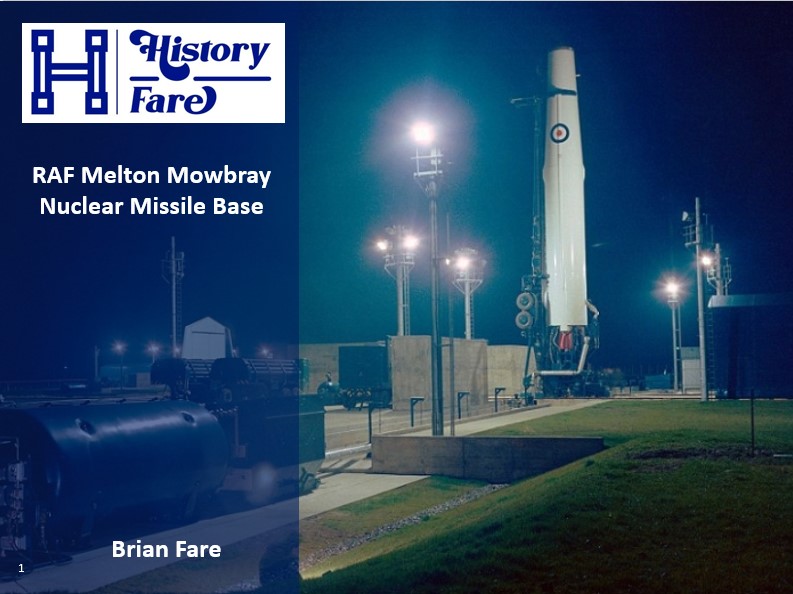
As a follow on from the RAF Melton Mowbray presentation, Brian focuses this talk on a more in depth look at the history when the base was home to three Thor nuclear intermediate-range ballistic missiles during the cold war.
04 – Lest We Forget – War Memorials of Melton Mowbray Leicestershire & Rutland
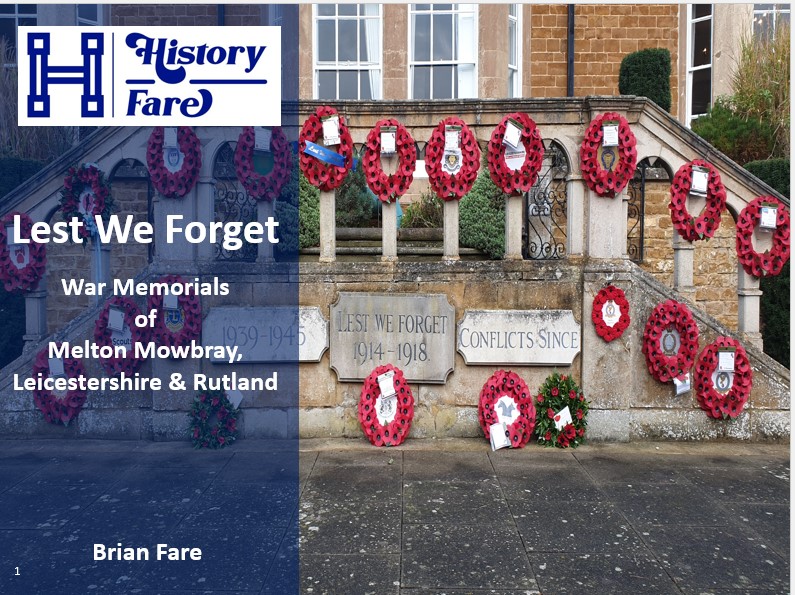
The Lest We Forget talk gives and overview of war memorials and takes a look at what is a war memorial & why we commemorate along with looking at some of the different types of war memorials that can be found across Melton Mowbray, Leicestershire and Rutland.
The talk also provides an overview about some of the organisations that help support local authorities with maintaining their war memorials.
05 – Balloons Going Up
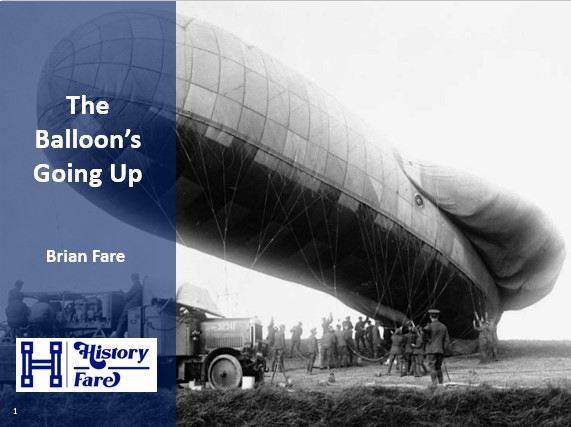
The Balloon’s Going Up talk looks at the life of 2nd Lt Elfric Ashby Twidale, the grandson of the long standing (of over 40 years) vicar of Meltons Baptist Church Reverend Joseph Twidale. Elfrics father, Ashby, emigrated from Melton to Canada where he set up home, married and raised his family. Elfric joined the local Militia when he turned 18 and enlisted into the Canadian Overseas Expeditionary Force at the outbreak of WW1. He served with the No2 Eaton Machine Gun Battery before taking his Commission with the Royal Field Artillery. Shortly after being commissioned, he was promoted to Temporary Captain commanding a Trench Mortar Battalion. After this command, he was assigned to the Royal Flying Corps and became an Observer known as a ‘Balloonatic’. Whilst up in the air over the Arras battlefield in 1917, he was killed.
06 – The Falklands War – All in a Days Work for the RAF

In this presentation we look at how the RAF was involved in a military campaign at the far end of the world that was not even envisaged nor equipped for. The various auircraft platforms that were considered and eventually used including some thatw ere saved from the scrapyard. The Falklands campaign for the RAF was a fine example at its best where it improvised, adapted and overcame all the engineering and logistical problems that enabled the success of the campaign.
07 – 156 Battalion Parachute Regiment

156 Battalion the Parachute Regiment were based in Melton Mowbray during 1944 prior to going to Arnhem and taking part in Operation MARKET GARDEN with the 4th Parachute Brigade, 1st Airborne Division. In this presentation, we take a look at their short stay in Melton, where they were accommodated, where they trained and where they socialised.
08 – RAF Saltby & the 314th Troop Carrier Group
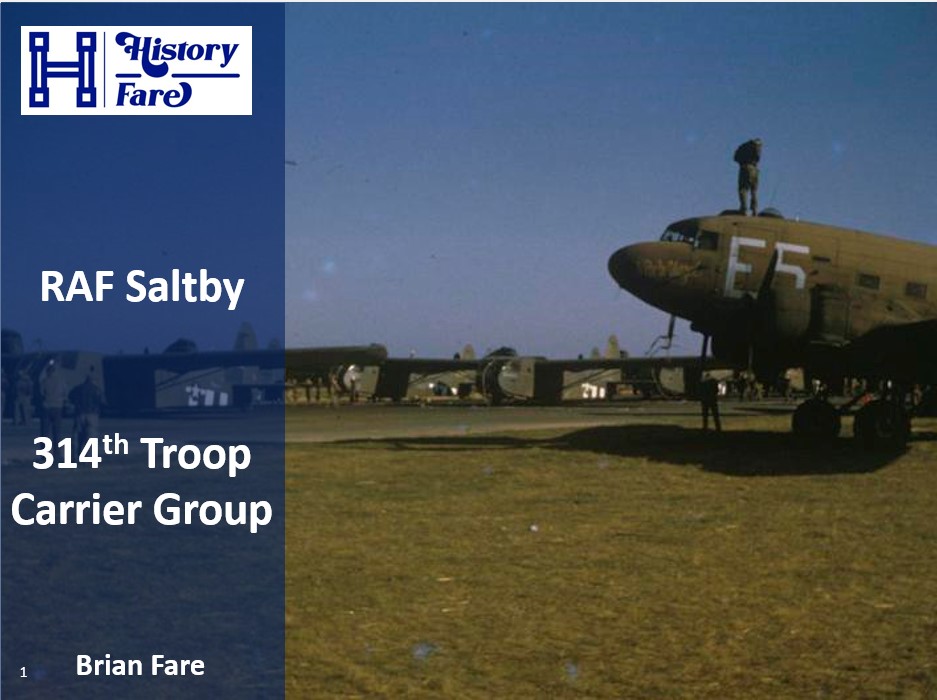
The airfield of RAF Saltby opened in 1941 and was a satellite base for No 14 Operational Training Unit who were based at RAF Cottesmore a miles away. No 14 OTU operated the Hampden and Wellington bombers from Saltby and trained hundreds of bomber crew recruits. In 1943, the airfield was upgarded from a grass strip to a Class A airfield wuith 3 concrete runways, but as the upgrade was nearing completion, it was handed over from the RAF to the United States IXth Air Force Troop Carroer Command and became home to the 314th Troop Carrier Group.
09 – Just Another Trip! – The Melton Mowbray Wellington Bomber Crash
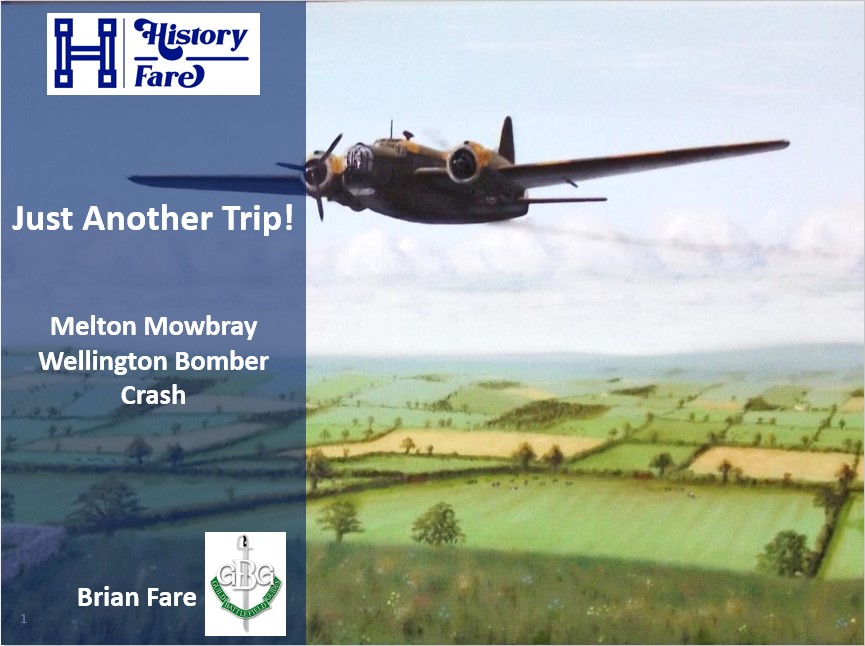
On the 13th August 1944, Wellington LN281 from No 14 OTU took off from RAF Market Harborough in Leicestershire for a cross country training flight followed by a bombing run at Grimsthorpoe Castle. At some point during thsi trip, the aircraft experieneced engine trouble and the Starnord engine shut down. Whilst trying to make an emergency landing at RAF Melton Mowbray, the aircraft crash on the outskirts of town killingh 7 out fo the 8 personnel onboard.
Following the crash, attempts to rescue the crew were made by the local population including civilians, ATC Cadets, RAF personnel and members of 156 Battalion Parachute Regiment, several of whom were recognosed for their barvery by awards of commendation.
10 – Thailand – Burma Railway aka “The Death Railway”.
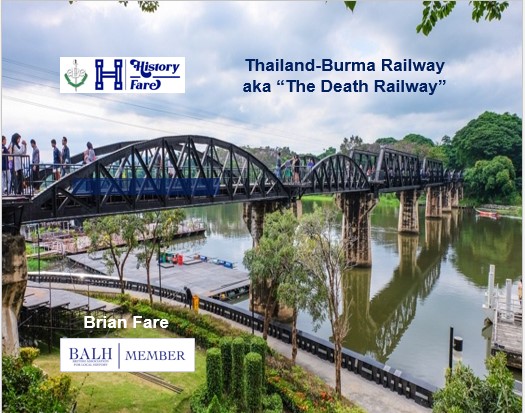
The Thailand-Buirma Raiwlay became known as the Death Railway during WW2 due to the number of deaths of Prisoners of War and also civilian labourers. This talk looks at how it became known as teh Death Railway and also the RAFs bombing campaign to destroy the railway network and hiow RAF POWs were treated after capture.
Commonwealth War Graves Commission
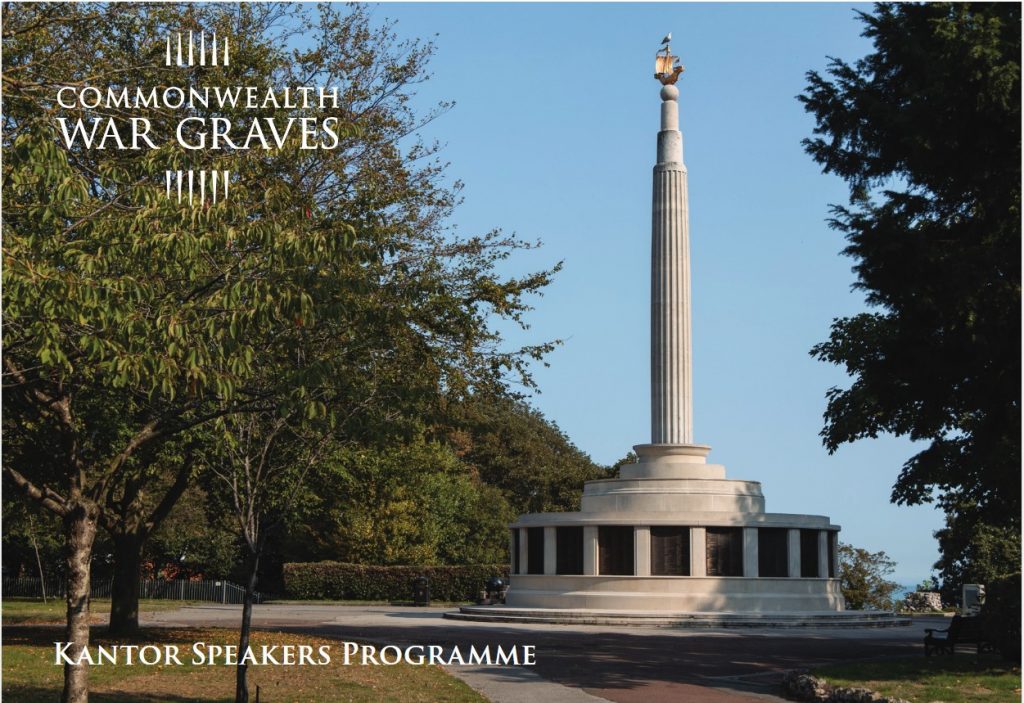
In addition to the ‘History Fare’ talks listed above, Brian is also a volunteer public speaker and tour guide for the Commonwealth War Graves Commission and deliver talks on their behalf.
The talks are:
We are CWGC (an introduction to the history and work of the CWGC)
Gardening the World – the Horticulture of the CWGC.
The CWGC Architecture and its Conservation
The CWGC Archives and Records
The History of the CWGC
Booking a Talk
To book a talk for your organisation, please get in touch via the contact page .
